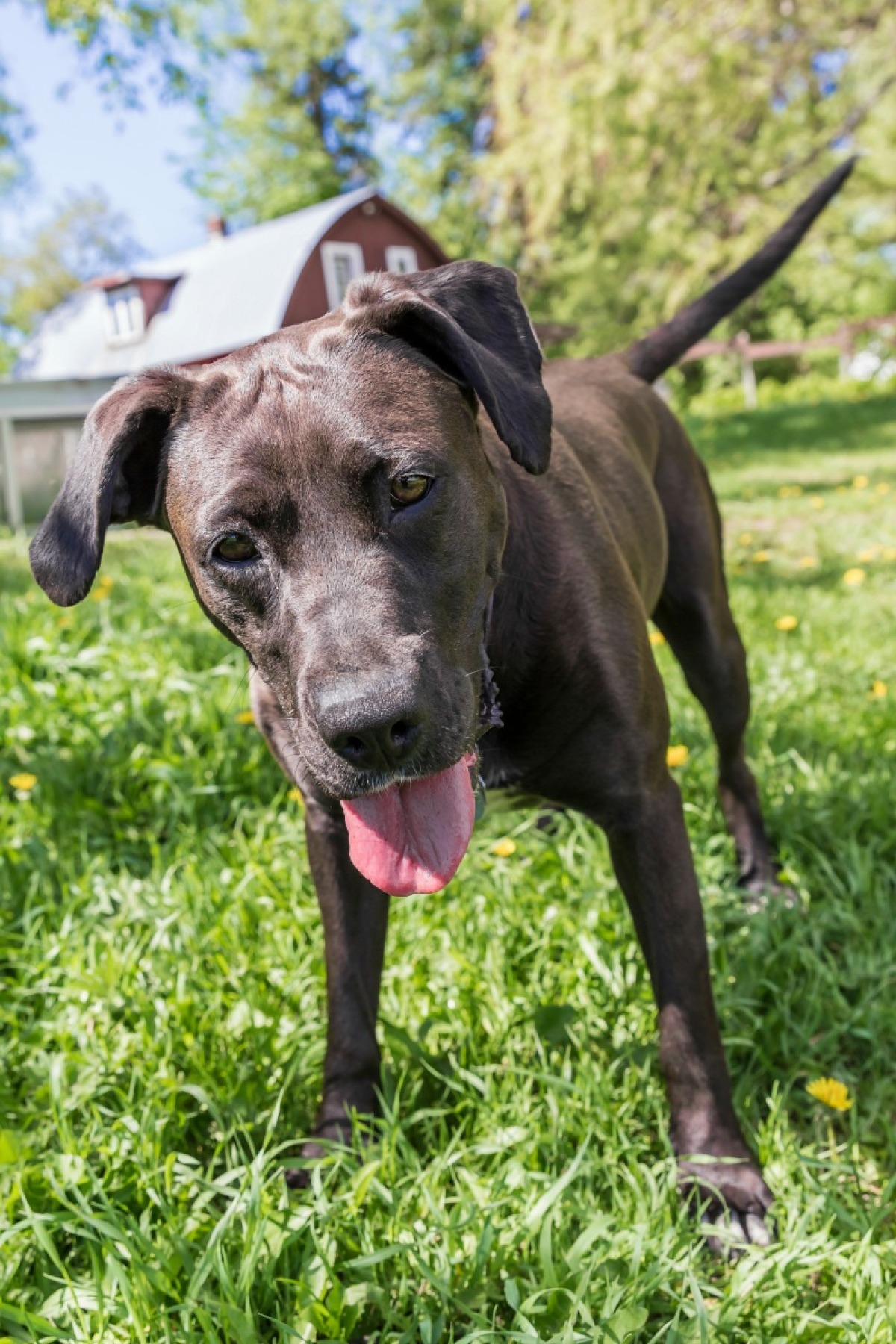


The height and weight of a Rhodesian Ridgeback cross breed, will depend partly on the size of the other parent. Males are slightly taller and larger than females.

The Rhodesian Ridgeback stands 24 to 27 inches tall and weighs 70 to 85 pounds. A 2015 journal article has linked the Ridgeback to the Great Dane and a number of other sizeable working K9s along with a handful of companion breeds.

Modern genetic science has begun to unravel the mysteries behind the Rhodesian Ridgeback breed’s origins. The breed name comes from a distinctive feature – the appearance of a “ridge” that follows the length of the dog’s spine. So it is probably no surprise to learn this dog’s nickname is “African Lion Dog!” The Rhodesian Ridgeback is a truly ancient purebred dog with origins still partially shrouded in mystery. The Rhodesian Ridgeback originally comes from Rhodesia, the African country now known as Zimbabwe. Also, they're relatively affordable to purchase as puppies.Watch these Rhodesian Ridgeback mix puppies grow! Rhodesian Ridgeback Mix Origins This mix is family-friendly, intelligent, eager to please, and easy to train. They require slightly less exercise than the original breed and can do well in smaller spaces, even if they aren't ideal apartment dogs. Since they are smaller than Boxers, they are less expensive to feed and easier to care for. If you understand the cons, there are many pros to this breed. Because the miniature Boxer sheds, it may not be suitable for those looking for a hypoallergenic dog breed. They aren't meant for owners with sedentary lifestyles or those who reside in apartments. The miniature Boxer is also a high-energy breed that requires a hands-on owner. Many " miniature " dogs have been heavily inbred, so it's not uncommon for them to develop genetic disorders or become ill at a young age, even from a reputable breeder. The breeding procedures used to create this mix are extremely controversial. Keep in mind that a particular pup might never face one of these health issues, but the possibility could be there in the gene pool, so it's good to be aware.Įvery dog breed and mix come with their pros and cons, and these are important to be aware of prior to bringing a breed into your household. English Bulldogs are prone to a long list of health concerns, including obesity, heat stroke, elongated soft palate, heart disease, and more.Beagles are prone to epilepsy, intervertebral disk disease, and tumbling puppy syndrome.Corgis are prone to eye problems, glaucoma, and progressive retinal atrophy.Rat Terriers can be prone to allergies, dental problems, and patellar luxation.Fox Terriers can be prone to Legg-Calve-Perthes disease, patellar luxation, congenital hypothyroidism with goiter, and primary lens luxation, among other health issues.
#Mini boxer mix skin


 0 kommentar(er)
0 kommentar(er)
